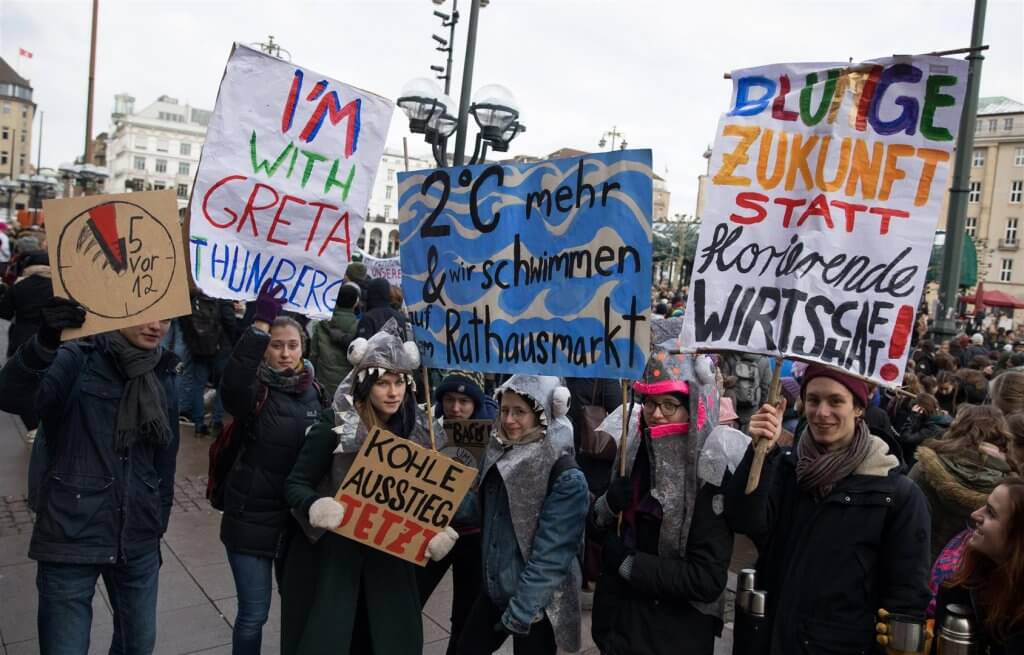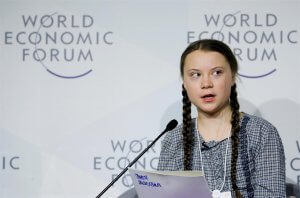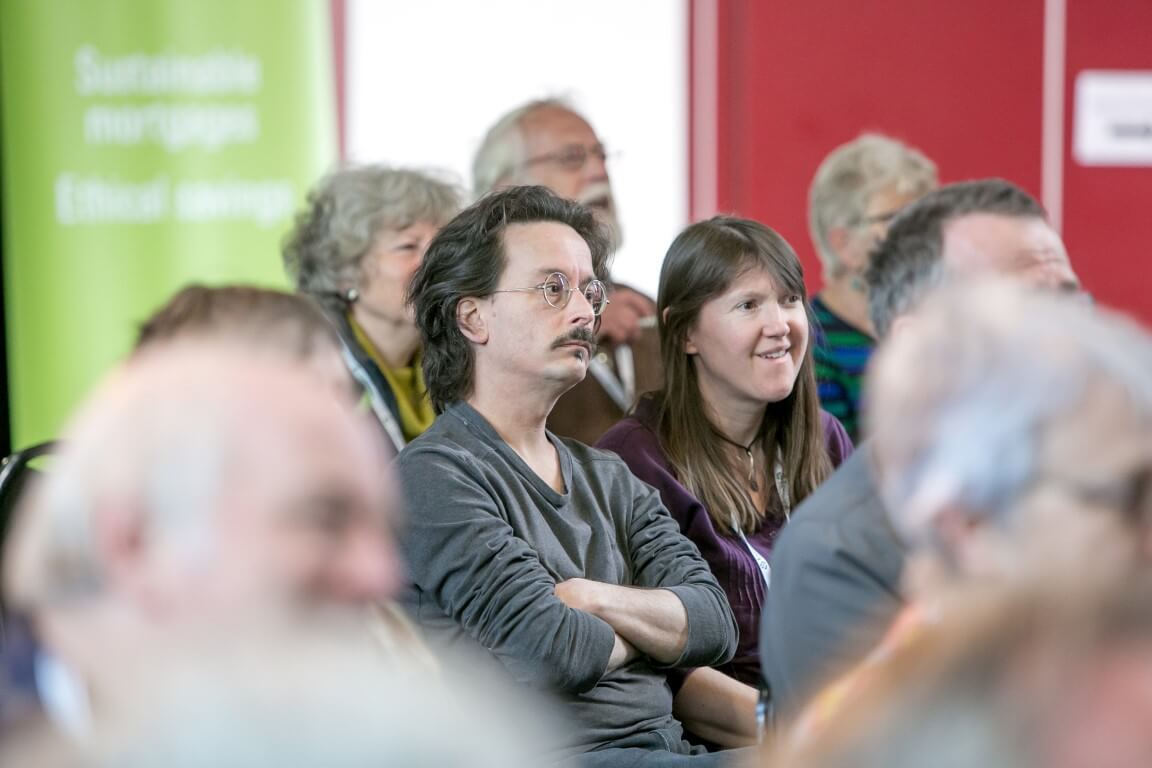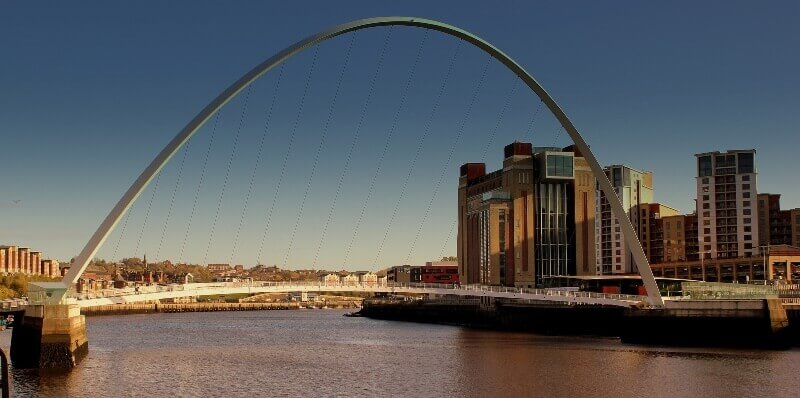From Inertia To Urgency

The world’s elite gathered recently in Davos, Switzerland for the annual meeting of the World Economic Forum. Ecology non-executive director, Alison Vipond, discusses how one Swedish school girl managed to get climate change onto the agenda and how she is inspiring others to take personal action.
Despite the estimated record 15,000 private jets which landed in Davos for the World Economic Forum, it was heartening to read coverage of 16-year-old Swedish school girl Greta Thunberg as she talked passionately about climate change and urgency for action. She spoke bluntly to the influential leaders at the Forum, saying:
“At places like Davos, people like to tell success stories. But their financial success has come with an unthinkable price tag. And on climate change, we have to acknowledge we have failed. All political movements in their present form have done so, and the media has failed to create broad public awareness [….] I want you to act as you would in a crisis. I want you to act as if our house is on fire. Because it is.”
Also at Davos, German chancellor Angela Merkel said that industrialised countries in the West bore a lot of responsibility when it came to moving to clean energy.
Her government aims to increase the share of renewables from 38% today to 65% in 2030 and will close the last of its nuclear plants in 2022. Significantly, Germany’s Coal Commission has recently agreed to phase out coal by 2038. This is an important step, though not early enough to meet the Paris Agreement targets. Phasing out dirty coal makes sense, not only does it contribute to climate change, it also affects the quality of the air we breathe.
Merkel stated that in the transition away from coal “energy needs to be affordable” and the Coal Commission recommended compensating energy firms for shutting coal plants before the end of their lifetime and shielding customers from rising energy bills. The German energy secretary said it would be a “very expensive transition” but it was necessary to move away from coal.
Coal is still firmly centre of the climate debate. Indeed, the December UN climate talks (known as COP24) were held in Katowice, a city in the heart of the Polish coalfield. In fact, a new coal mine was opened in the region just before the conference started; the Polish pavilion at the COP was proudly decorated with coal. “There is no plan today to fully give up on coal,” Poland’s president, Andrzej Duda, told the opening plenary.

Ecology asked Leeds-based journalist Peg Alexander, who was at the first week of COP24 making videos, to share her experience of the climate talks. “That first week nothing much seemed to be happening” she said. “There was a lot of discussion and disagreement, and many were worried that not much would come out of the talks.” She spent most of her time between the NGO part of the venue and the official pavilions where Governments had their stands. The whole event was huge with around 25,000 people attending. “Imagine the O2 Arena in London and you get the idea. It took about 10 minutes to walk between the sections, often so rammed you could hardly move. Yet, when I was there, there seemed to be little progress” she said. On social media many talked about the carbon footprint of the event, not least about the food and drink. “Tea and coffee was all served in disposable cups, there were no non-dairy milks, and as a vegetarian I found it almost impossible to find things to eat” said Peg. A large demonstration took place on the Saturday as protestors wearing gas masks chanted that it was time for action in English and Polish as huge numbers of riot police looked on. “I had no idea whether the official delegates heard about or took notice of the demo.”

In the second week, however, progress was made and agreements were made on how governments would measure, report on and verify efforts towards meeting the Paris commitments. The next COP to check up on action was due to take place in Brazil this year, but has been switched to Chile after new President Jair Bolsonaro refused to hold it. On the plus side it was also agreed in 2020 the world will look for more ambitious targets beyond Paris.
Journalists were everywhere at COP24 but very few high profile or celebrity figures to capture the public’s imagination. That seems to have been left to the gathering at Davos, particularly an increasing emphasis on young people’s views. Global Shapers, a network of young people launched Voice for the Planet calling for a new deal for nature and the planet. The movement of school children’s strikes demanding climate action is growing around the world, across continents. Next Friday they will start in the UK for the first time with strikes planned in 30 towns and cities across the country.
Meanwhile, Greta Thunberg, just 16, has had to deal with almost unbearable amounts of criticism and attack from people all over the world. But she has stood strong, answered her critics with clarity and refuses to be swayed from her message and purpose. She, and other children taking action, have shown many of us adults exactly what leadership is.
So, while politics is making small steps forward, we can take inspiration from these children and also make our own considered choices for personal action on climate change:
- How we insulate and heat our homes
- How much we travel around – this is not just cars, but flights too
- What we buy – most stuff we buy will involve fossil fuels at some point, be it in the plastic it is made from or wrapped in, or the energy used to manufacture it and transport it
- How we vote and lobby our politicians
- How we talk about it – keep pressing for action
- How we educate ourselves and our children
- How we respect nature and the natural world
- What food we choose to eat
On the topic of food, international researchers have recently published a major review in the Lancet, scrutinising the food system and the health of people and planet. They warn that a global change is needed in diet and food production: 1 billion people live in hunger, 2 billion eat too much of the wrong foods. Food production Is damaging to the environment, driving climate change through the emissions of greenhouse gases (largely from livestock production), biodiversity loss (from land use) and pollution from farming.
Their detailed research has led to recommendations for five strategies to ensure people can change their diets and not harm the planet:
- Incentivising people to eat healthier
- Shifting global food production towards more varied crops
- Increasing agriculture sustainability
- Stricter rules governing the oceans and lands
- Reducing food waste
They have also devised the “planetary health diet” which is an ideal daily meal plan for people over the age of 2, that they believe will help reduce chronic diseases such as heart disease and diabetes, as well as environmental degradation. The diet is based on cutting red meat and sugar consumption in half, and increasing intake of fruits, vegetables and nuts.
So while there is a lot of attention on decarbonising the energy system to meet the Paris Climate Agreement, we must also recognise that the food system must also undergo transition. This is something we can all take personal steps towards through our food choices and avoiding waste.
Food for thought indeed.





